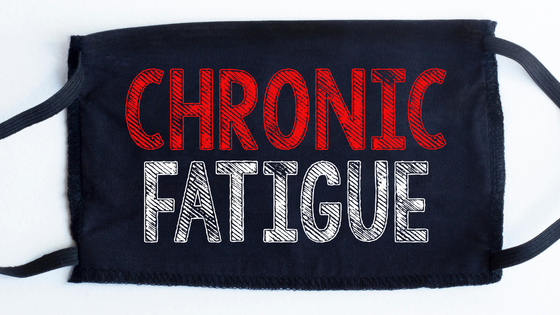Sjӧgren’s Syndrome is often one of the less well-known autoimmune conditions, but it can have a major effect on day-to-day life. It was first highlighted by Swedish physician, Henrik Sjӧgren, who noticed that women with arthritis also tended to have dry eyes and a dry mouth. Here’s what to know about this autoimmune condition.
What Causes Sjӧgren’s Syndrome?
As with autoimmune conditions in general, Sjӧgren’s is caused by the immune system mistakenly attacking healthy cells, causing the abnormal production of extra antibodies in the blood and inflammation of the glands. For Sjӧgren’s, this affects parts of the body that produce tears, saliva and other fluids. The effects can extend to the joints and muscles too, which aren’t receiving the lubrication they need.
Who Gets Sjӧgren’s Syndrome?
Sjӧgren’s is more likely to affect women, especially between the ages of 40 and 60. Women 40 years of age have been found to be 10 times more likely than men to contract this disease. Between 0.2% and 1.2% of the population is said to be affected.
If you already have an autoimmune condition such as rheumatoid arthritis, scleroderma or lupus, are more likely to get Sjӧgren’s as well. This is known as secondary Sjӧgren’s. Click To Tweet If there isn’t an existing autoimmune condition, it’s classified as primary Sjӧgren’s.
Symptoms of Sjӧgren’s Syndrome
Because the immune system attacks the cells linked to fluid protection, some of the main symptoms of Sjӧgren’s involve dryness. Symptoms can go beyond the obvious and affect the body as a whole.
Some of the main symptoms of Sjӧgren’s Syndrome include:
- Dry mouth (which may cause problems when swallowing, especially when you’re eating dry foods)
- Swollen salivary glands (and swelling of the glands in the face)
- Dry eyes (which may feel irritated, itchy, burning or gritty)
- Dry skin (which may also be itchy)
- Vaginal dryness
- Joint/muscle pain
- Cognitive problems, including memory and focus issues
- Fatigue (which can be debilitating and extreme)
- Getting frequent oral thrush infections (because of a dry mouth)
- A tendency to get cavities (because of a dry mouth)
For some people, these types of symptoms are very mild and don’t cause a huge number of problems. For others, they can be super debilitating and have a huge impact on day-to-day life.
Because the symptoms of Sjӧgren’s can also occur in other conditions, it can take a while to rule out other health problems that cause similar symptoms.
Diagnosing Sjӧgren’s Syndrome
Sjӧgren’s can be misdiagnosed initially, not least because the symptoms can have a lot of crossover with other conditions.
If your doctor suspects that you may have Sjӧgren’s, there are a few tests that can be done to confirm a diagnosis. These tests include:
- Tests to see how well your tear ducts and salivary glands are working.
- Eye examinations to see if you’re experiencing dry eyes and if there’s any damage to the cornea.
- Blood tests can check for antibodies, which will strongly suggest that your immune system is in overdrive.
- A biopsy of the skin on your upper lip and/or saliva glands on your face may also be used to officially diagnose Sjӧgren’s.
Treatment for Sjӧgren’s Syndrome
There is no cure for Sjogren’s. The medical focus is on relieving the symptoms of the condition and halting the progression of the disease.
The treatment for dry eyes is medication to reduce inflammation and/or the insertion of plugs into the tear ducts of the eyes, which prevents drainage of liquid from the eyes. Eye drops can replace the fluids that your eyes aren’t producing naturally, and is usually still required even with duct plugs. Some medications can also do this. Attempts to shut the tear duct by means of surgery is sometimes tried.
Sugar-free chewing gum, sipping water, or a saliva substitute is recommended for a dry mouth.
The above efforts may not completely get rid of dryness, but it can make it less uncomfortable. It can also reduce the potential for cavities, infections, and other complications that can develop because of a dry mouth and dry eyes.
For joint and muscle pain, ibuprofen may be used, and medications such as antihistamines that can cause dryness are avoided.
For more severe Sjӧgren’s, medications that suppress the immune system may be recommended.
Complications From Sjogren’s Syndrome
Progression to tooth decay, oral yeast infection, ulceration of tongue and cheek membranes, and periodontal disease is a possible complication, if proper oral care is not observed.
Consultation with appropriate specialists to ensure dry eyes do not lead to serious eye injury, particularly to the cornea, is important.
Inflammation can cause serious illness in some of the more severe cases of Sjogren’s. Recurrent vaginal infections and painful intercourse may develop if lubrication is not used.
What’s the Prognosis?
If you develop Sjӧgren’s, you’ll be affected for life as there’s currently no cure for the condition. That said, there are things that you can do to manage symptoms and still have a good quality of life.
Most people with Sjӧgren’s stay healthy and while there is potential for getting infections and cavities, it’s fairly rare to get serious complications. Tackling dryness, being super aware of the potential for infections and staying on top of your dental health is super important for minimizing some of the more common effects of Sjӧgren’s Syndrome.
If you are looking for more tips and support, join me over on my group page, The Village – A Natural HEALing Community, to get tons of information and tips to help you take your HEALTHY EATING and ACTIVE LIVING to the next level.
HEAL GOOD. FEEL GOOD. DO GOOD.
[/et_pb_text][/et_pb_column][/et_pb_row][/et_pb_section]





+leave a comment . . .